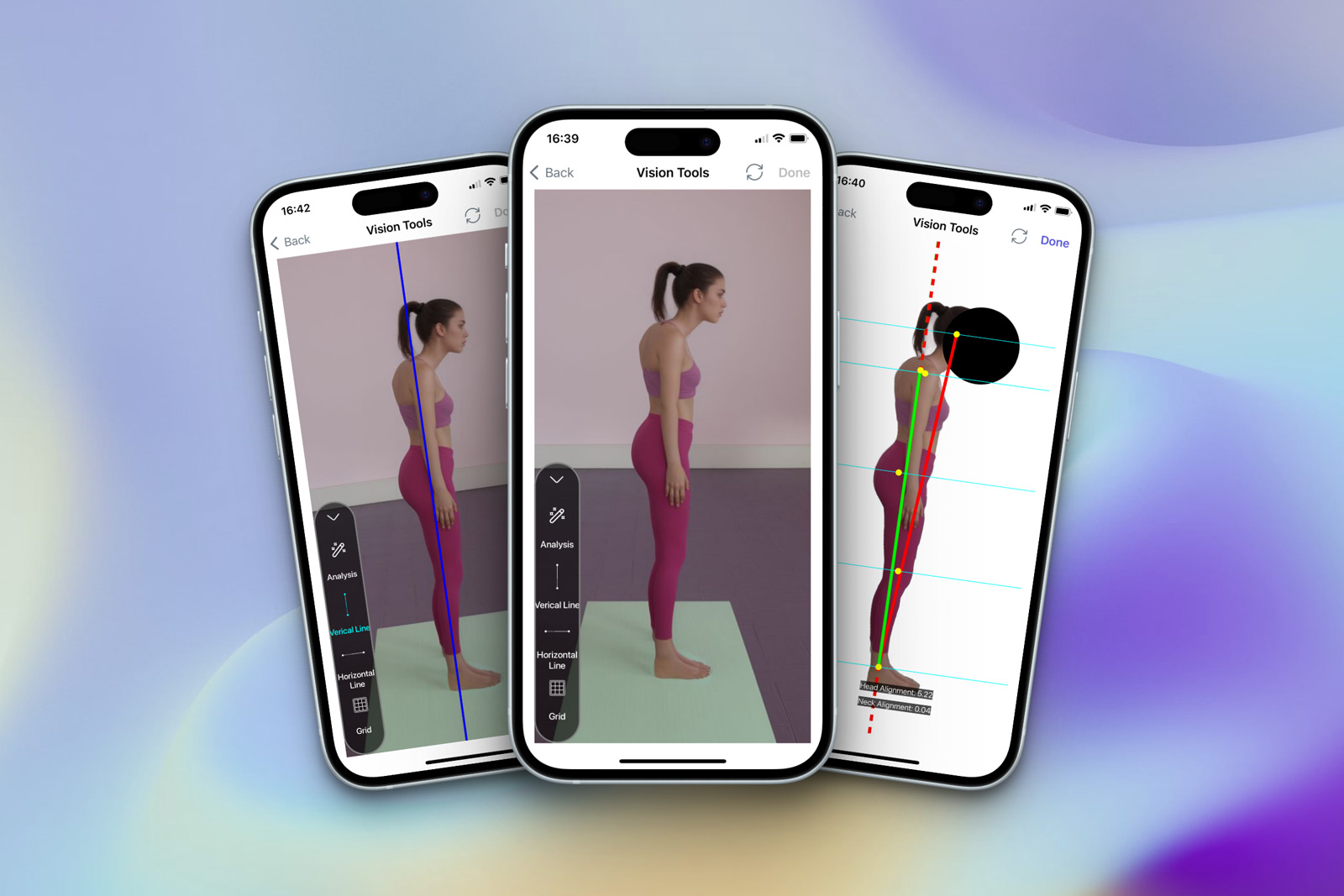
Understanding Hyper kyphosis:
Hyperkyphosis commonly known as a “hunchback,” is a condition characterized by an excessive forward
curvature in the upper back. Also simply referred to as kyphosis, it involves an exaggerated outward curve
in the thoracic spine, resulting in a noticeable rounding or hump. For fitness and bodybuilding coaches,
this condition is significant due to its impact on posture, movement, and overall spinal health.
Hyperkyphosis affects spinal mechanics, alters posture, and can influence functional movement, making it a
crucial factor to consider in training and exercise programming.
Causes and Contributing Factors:
1.Pathophysiology:
• An excessive kyphotic angle, often greater than 40 degrees, results in the upper back
curving forward.
• The possible causes might include muscle dystrophies, Scheuermann's disease,
degenerative illnesses (like osteoporosis), or repetitive postures.
2.Aging Factors:
• Often seen in older adults, attributed to the weakening of spinal bones and
muscles.
3.Osteoporosis:
• This condition weakens bones and increases the risk of spinal fractures, which
contributes to kyphosis.
4.Genetic Predisposition:
• Some individuals may have a genetic tendency towards developing this condition.
5.Developmental Concerns:
• Childhood spine development issues, like those seen in Scheuermann’s disease, can
lead to hyperkyphosis.
Symptoms:
• Visible Upper Back Curvature: A more pronounced curving of the upper back.
• Back Pain and Stiffness: Common symptoms that affect clients during workouts.
• Muscle Fatigue: Often experienced in the back and shoulder muscles, which could
impact exercise performance.
• Breathing Challenges in Severe Cases: Difficulty in breathing might occur due to the
pressure exerted on the lungs in the advanced stages of the condition.
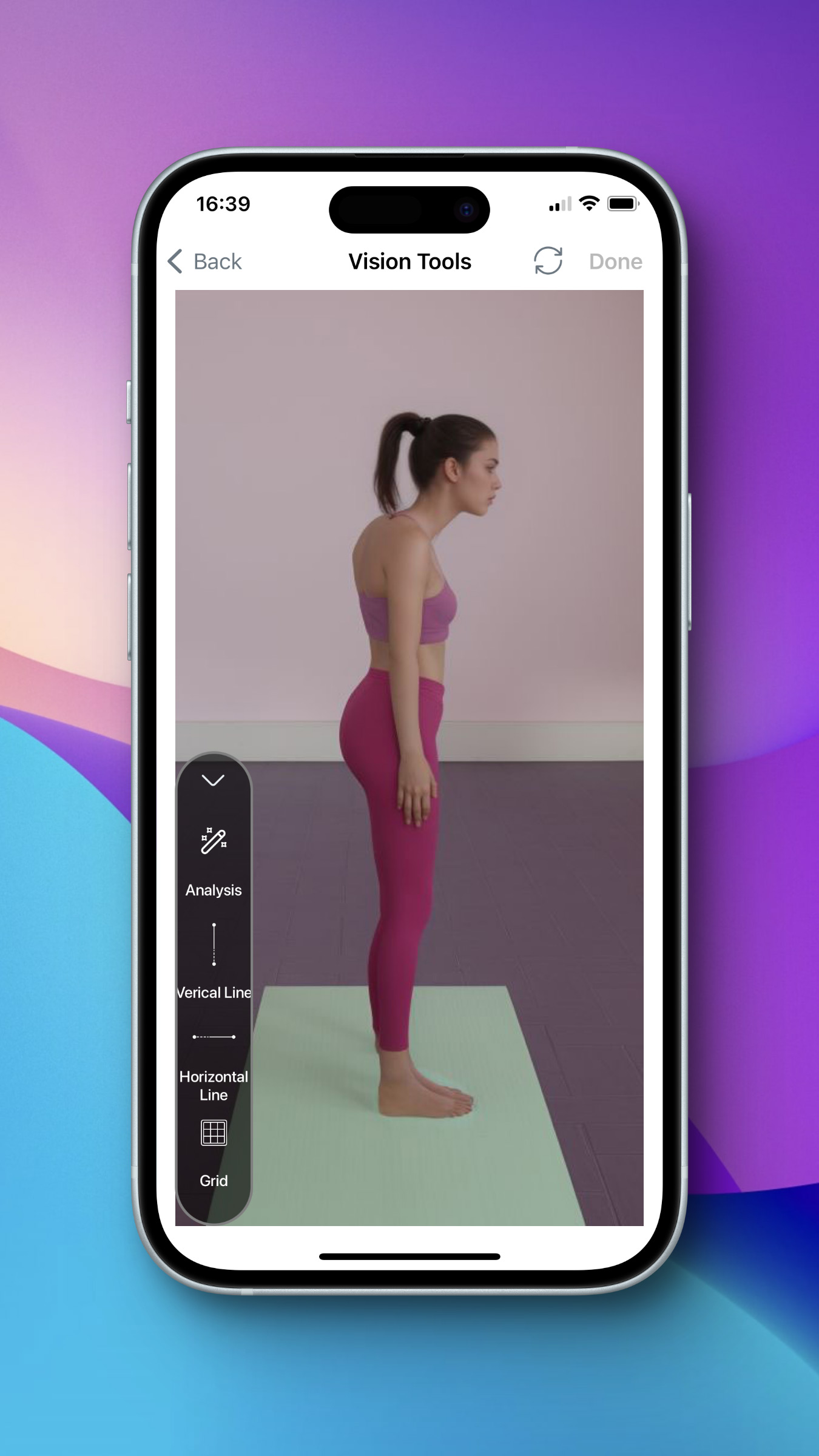
Upload your photo or take a picture of your subject in posture analysis.
Select the analysis and see the result from joint detection and alignments. You can see the difference between the ear and hip with centimeters.
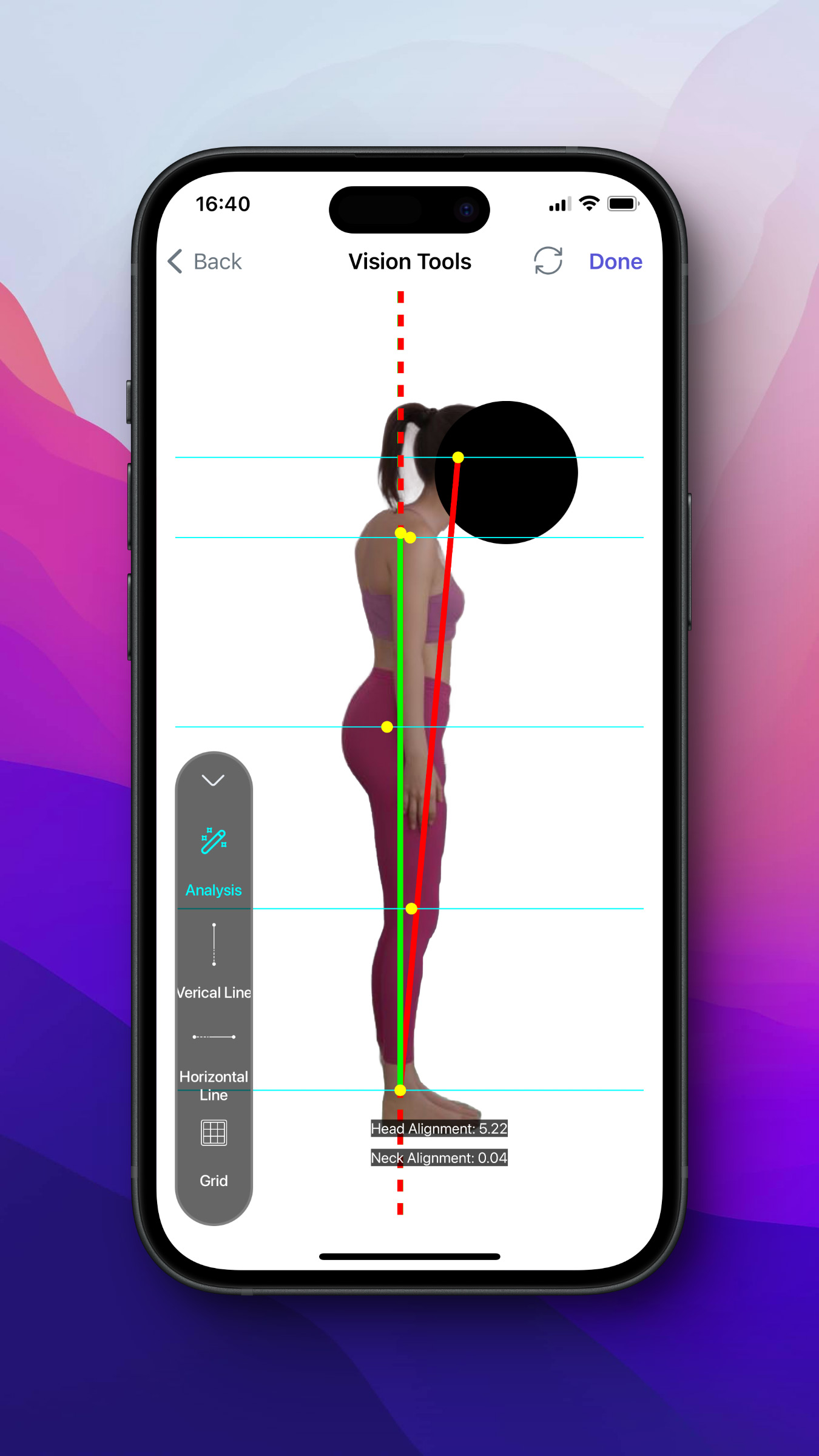
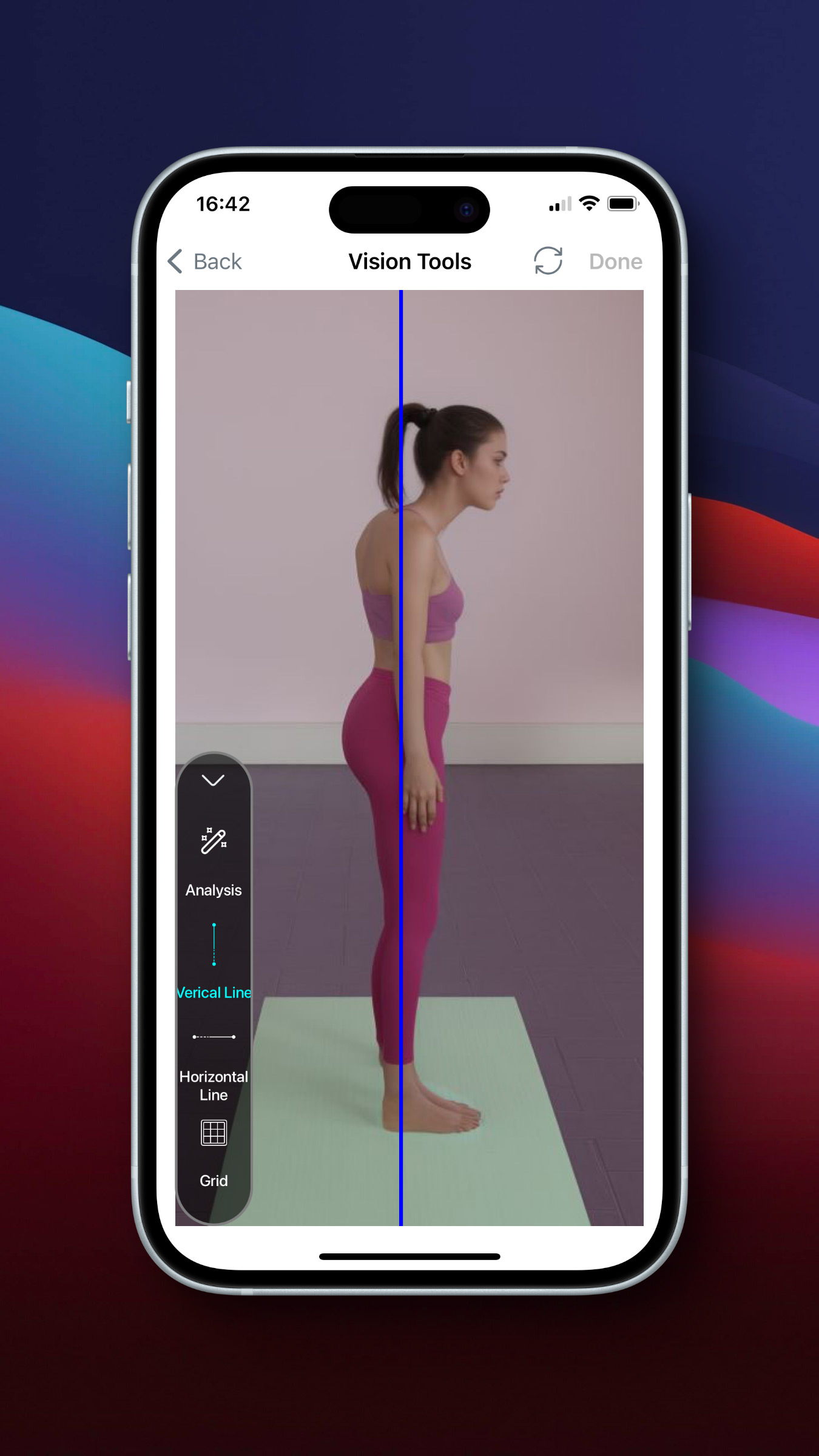
For more details use a vertical line.
For more details add grid. After assessing with our application you can record and save the process of therapeutic exercise.
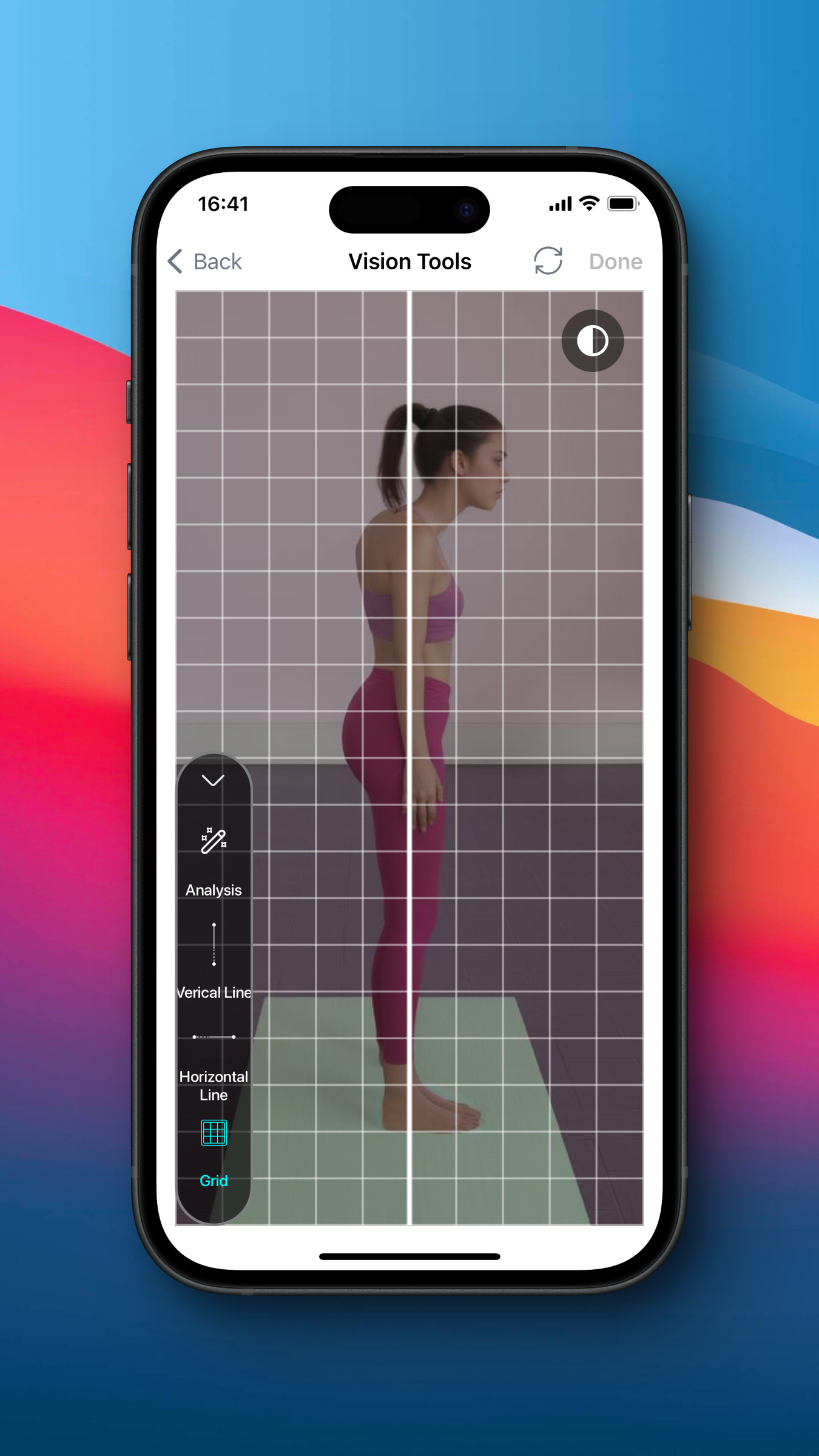
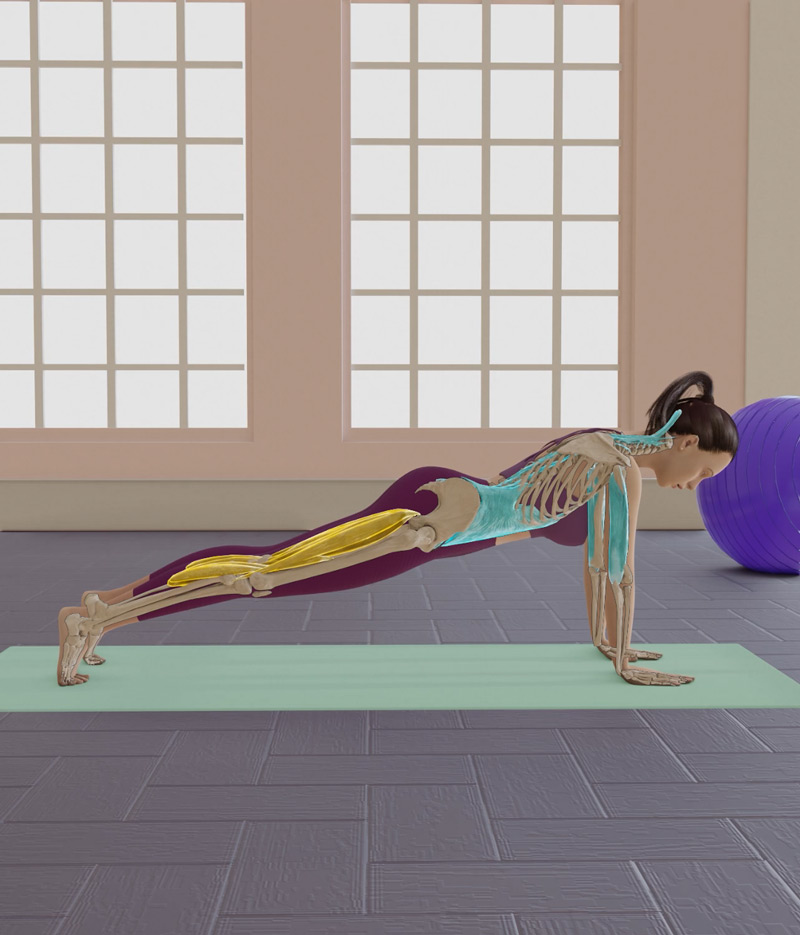
Engage core, back straight, arms locked, squeeze glutes and hold for 15-20 seconds..
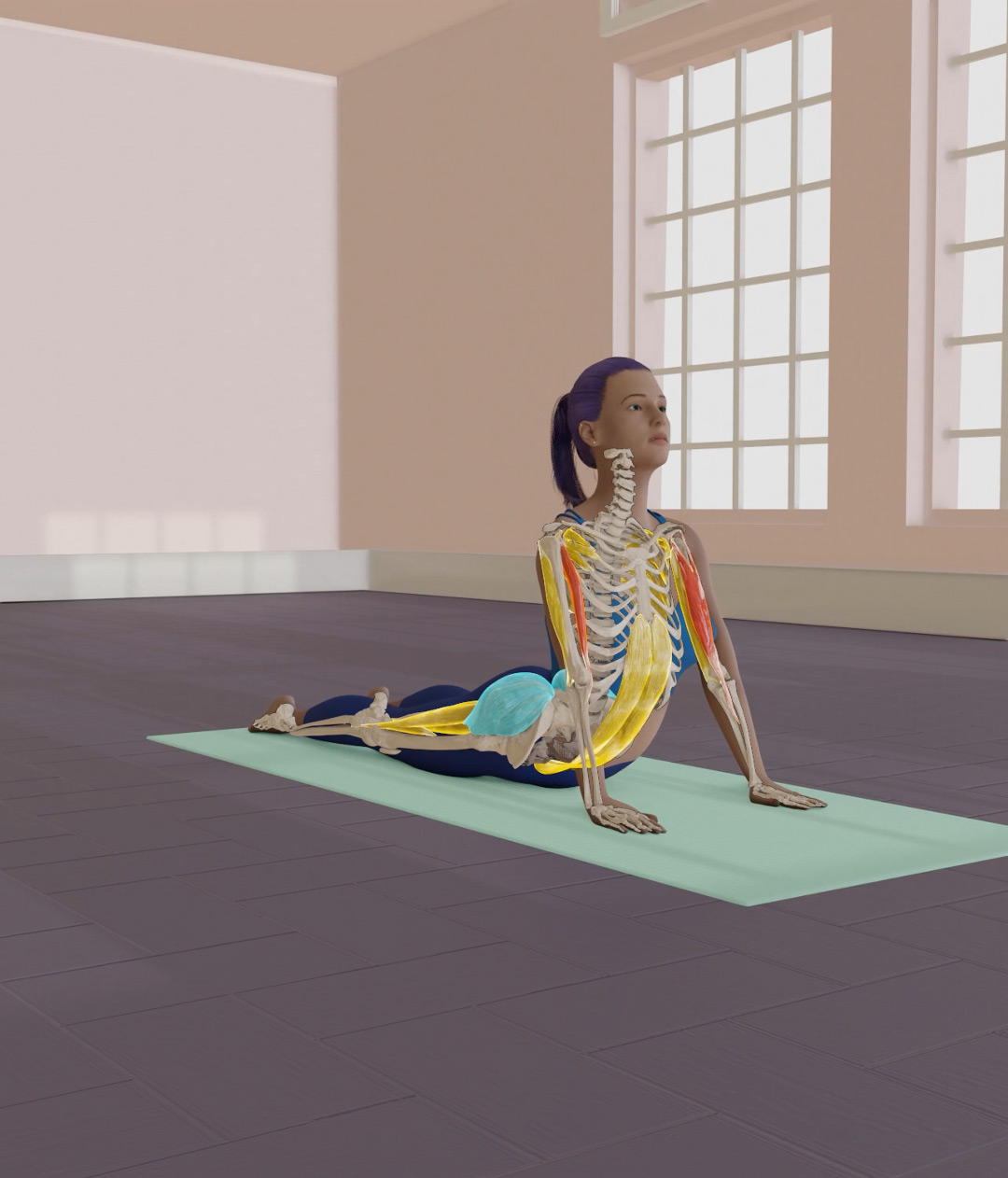
Lie on stomach, palms under shoulders, gently arch up, squeeze shoulder blades, hold 15 seconds.
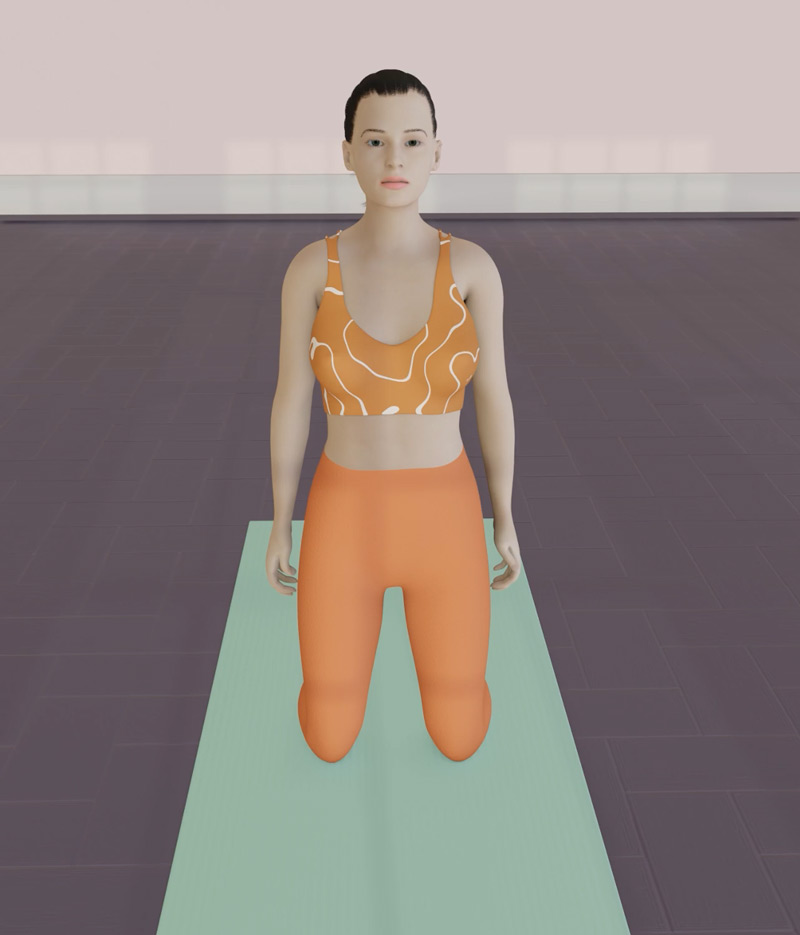
Gently arch back, squeeze shoulder blades, hold stretch gently 30 seconds, repeat twice.
After analysis, you can record the process of treatment and improvement in the corrective movement of the
person.
It's important to distinguish between sway back and hyperlordosis: in hyperlordosis, the body leans
forward, while in sway back, it leans backward. Both conditions can cause each other, but understanding
this distinction can aid in better analysis.
Kyphotic Curvature’s Role:
The extent of the kyphotic curvature is key in assessing hyperkyphosis’s biomechanical impact and
determining appropriate training modifications.
Severity and Management:
As hyperkyphosis severity increases, management strategies shift from conservative methods, like exercise
and posture correction, to potentially more comprehensive approaches, including multidisciplinary care or
surgery.
Biomechanical Implications:
Understanding how the curvature affects biomechanics at different stages is crucial for effective exercise
adaptation and client management.
Conclusion
In conclusion, understanding hyperkyphosis is essential for fitness and bodybuilding coaches, as it
significantly affects posture, movement, and overall spinal health. Recognizing its symptoms, such as
visible upper back curvature, back pain, muscle fatigue, and in severe cases, breathing difficulties, is
crucial. Advanced assessment techniques like Global Hyperkyphosis with Flexitrace offer valuable tools for
accurate analysis and monitoring progress. It's also important to differentiate hyperkyphosis from
conditions like hyperlordosis and sway back for effective management. With proper knowledge and assessment
methods, coaches can develop tailored training and exercise programs that address this condition,
contributing to the improved wellbeing and physical health of their clients.
| All Rights Reserved | FlexiTrace Developers LTD